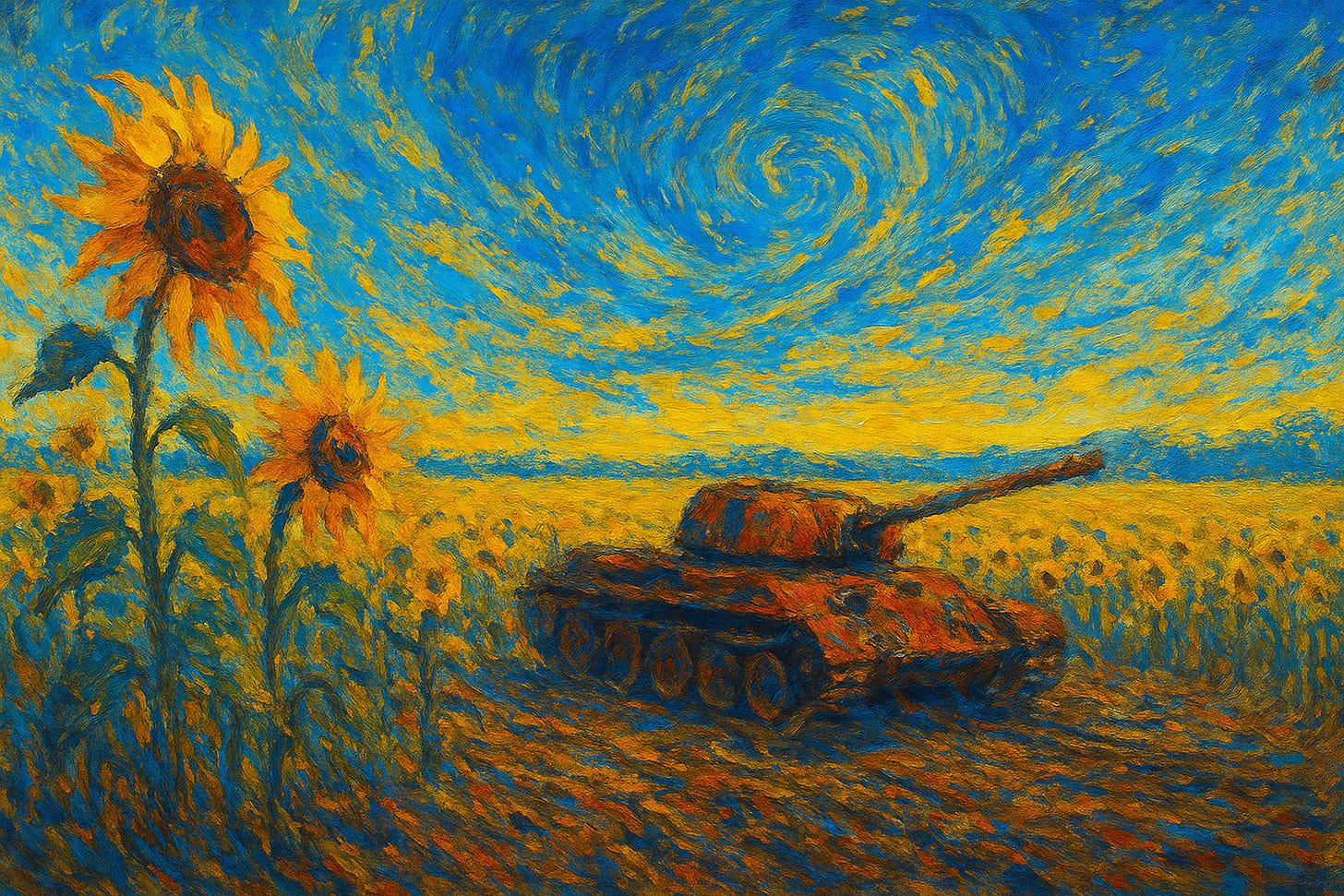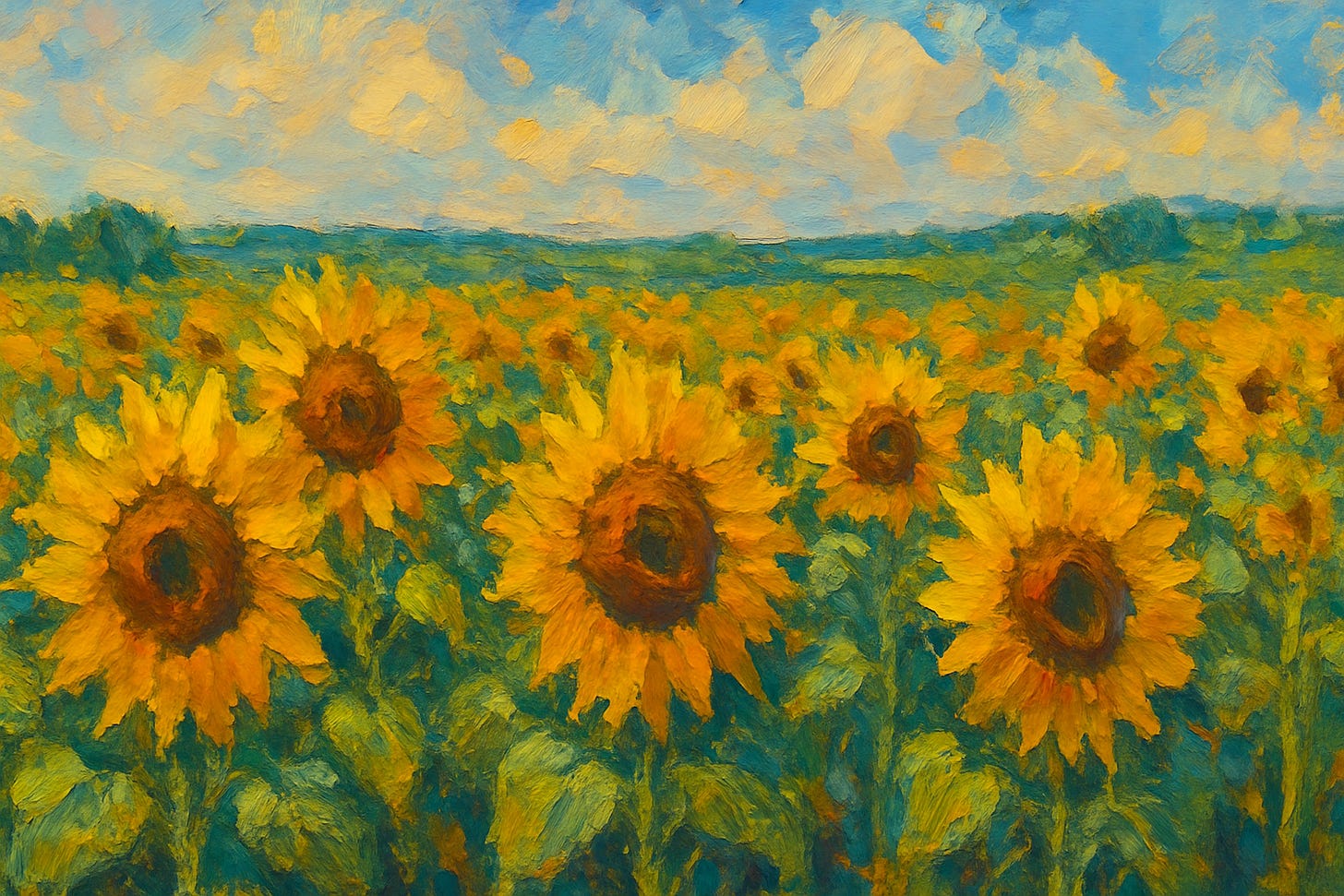🌾 When the Fields Fought Back
Introduction — A Short History of Our Fear of Change
This is a hopeful, optimistic series about the past, the future and how Ukraine shows us the way forward, not Farage, Trump, Theil or Musk.
Civilisation is just what happens when human anxiety learns bookkeeping. The story we call “progress” is the same story told eight times in different dialects:
A new tool appears, the world gets bigger, someone panics, and the effort to stop the change creates more of it. It’s a loop, not a line.
We’ve been running that loop since the first farmer decided the wild grain outside the campfire should stay put. That was the moment the world tipped.
Bread was humanity’s first food invention and its first trap — the prototype for every “can’t go back” in history. Once you can store food, you can own it; once you can own it, you can fear losing it. And that’s the kernel of everything that followed: fear turned into ritual, ritual turned into law, law turned into empire, and empire turned into a machine.
Each era built its defences against novelty and called them virtues. Every one of them eventually fell to the very thing it tried to suppress.
The priests of the early fields built calendars to control the seasons and ended up inventing bureaucracy.
The emperors of order burned or crucified heretics to preserve faith and created science instead.
The kings of print censored pamphlets and gave birth to democracy.
The industrial planners sought perfection and produced total war.
The broadcasters promised consensus and built propaganda.
The network builders promised freedom and delivered addiction and control.
And yet, each collapse left behind one small gift: adaptability. The ruins always taught us how to move a little faster, coordinate a little wider, think a little more plural.
This series, When the Fields Fought Back, isn’t about technology.
It’s about the emotional life cycle of civilisation—the way every new medium or idea amplifies our oldest fear: that difference or change will undo us. That fear has justified every crusade, empire, purity law, and “return to order” since the invention of the plough. It’s also what keeps inventing the future and how Ukraine fits into that future.
We still run the same software: the belief that if we can just organise the world properly—through temples, markets, political parties, algorithms—chaos will stop knocking.
It never does. The gods of old demanded sacrifice; the gods of modernity demand optimisation and efficiency. Either way, we keep feeding them.
What you’ll read here is one continuous story told through different masks:
Bread and the Gods.
Empires of Order.
The Paper Earth.
Total War, Total Media.
The Broadcast Century.
The Network Harvest.
The Restoration Bloc.
And finally, The Restoration Paradox.
It’s a story about how every attempt to restore the past accelerates the future,
how every fight against difference breeds new forms of it, and how every age mistakes its own architecture for eternity.
“The technium is not a collection of inventions,” wrote Kevin Kelly, “but a living system that keeps creating new possibilities.”
That’s the theme running through this series: technology as evolution’s next nervous system, and us—an anxious species still convinced the next harvest will finally be enough.
This is not a chronicle of optimism or despair.
It’s a field guide to pattern recognition.
History doesn’t repeat, but it does rhyme,
And right now, the fields are stirring again.





All these things are true, but whither AI, Matt?
I fear we’ll not suffer some future Butlerian jihad, but rather generations of unparalleled tyranny and/or unparalleled hallucination-driven paralysis at the hands of a naively conceived panopticon/panoptimizer — followed by ecosystem collapse.
We’re going to need an ANTIFAI to get through what’s already here & what’s still to come.
But I’m already enlisted for that fight: I’ve seen this pattern emerging for my adult life, and baby I was born to fight for justice for all.
coming in next episodes don't worry. 🤗